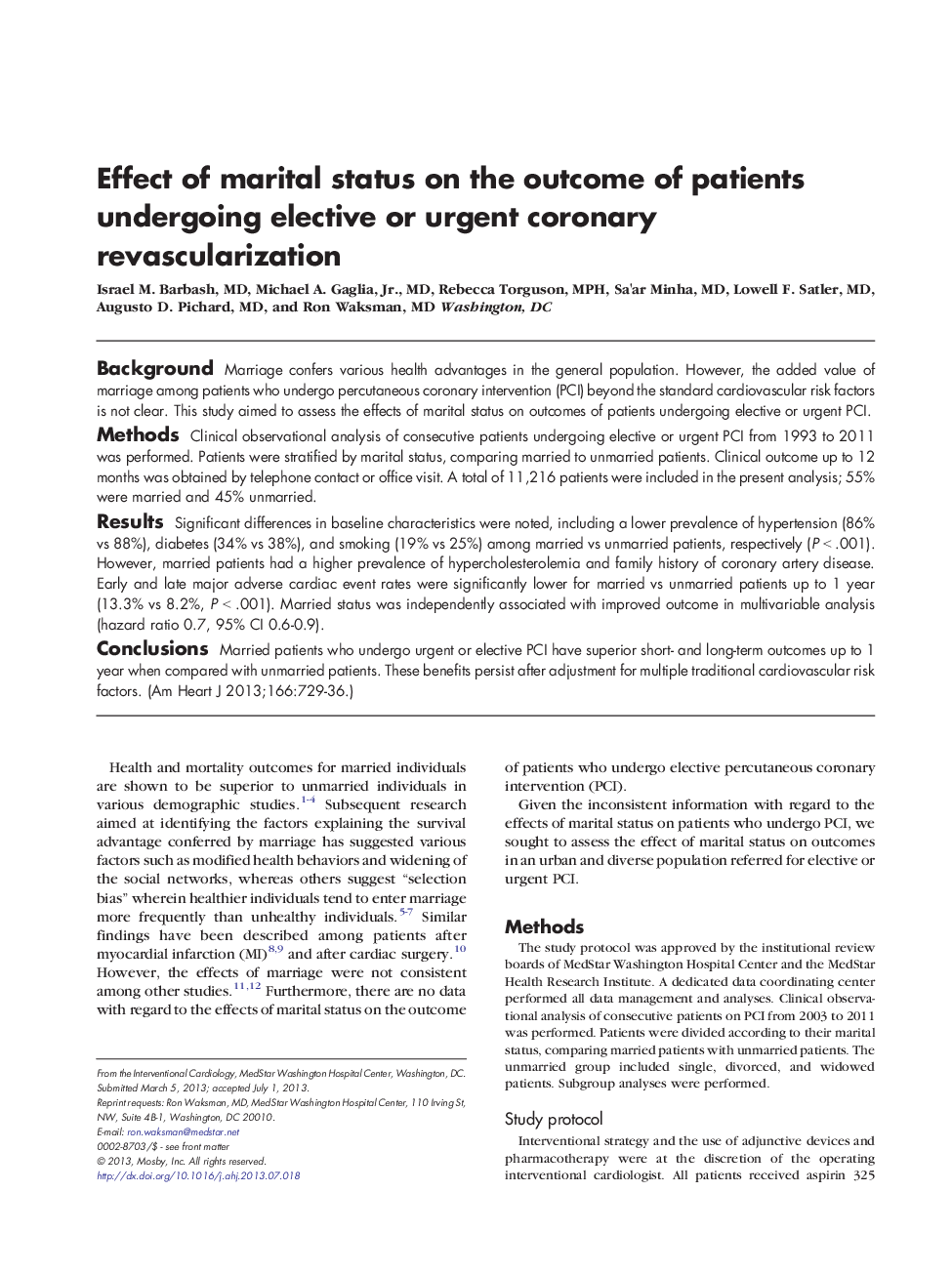| Article ID | Journal | Published Year | Pages | File Type |
|---|---|---|---|---|
| 5928674 | American Heart Journal | 2013 | 8 Pages |
BackgroundMarriage confers various health advantages in the general population. However, the added value of marriage among patients who undergo percutaneous coronary intervention (PCI) beyond the standard cardiovascular risk factors is not clear. This study aimed to assess the effects of marital status on outcomes of patients undergoing elective or urgent PCI.MethodsClinical observational analysis of consecutive patients undergoing elective or urgent PCI from 1993 to 2011 was performed. Patients were stratified by marital status, comparing married to unmarried patients. Clinical outcome up to 12 months was obtained by telephone contact or office visit. A total of 11,216 patients were included in the present analysis; 55% were married and 45% unmarried.ResultsSignificant differences in baseline characteristics were noted, including a lower prevalence of hypertension (86% vs 88%), diabetes (34% vs 38%), and smoking (19% vs 25%) among married vs unmarried patients, respectively (P < .001). However, married patients had a higher prevalence of hypercholesterolemia and family history of coronary artery disease. Early and late major adverse cardiac event rates were significantly lower for married vs unmarried patients up to 1 year (13.3% vs 8.2%, P < .001). Married status was independently associated with improved outcome in multivariable analysis (hazard ratio 0.7, 95% CI 0.6-0.9).ConclusionsMarried patients who undergo urgent or elective PCI have superior short- and long-term outcomes up to 1 year when compared with unmarried patients. These benefits persist after adjustment for multiple traditional cardiovascular risk factors.
